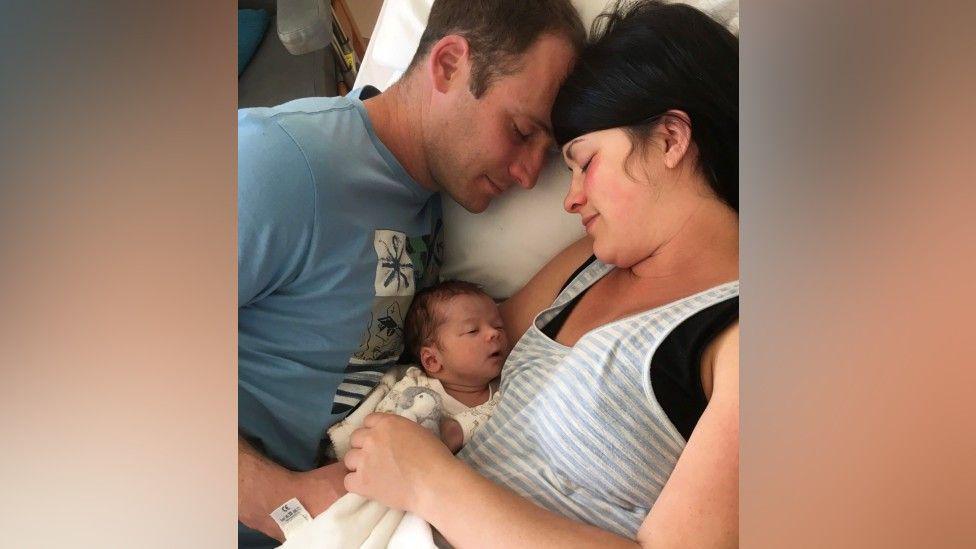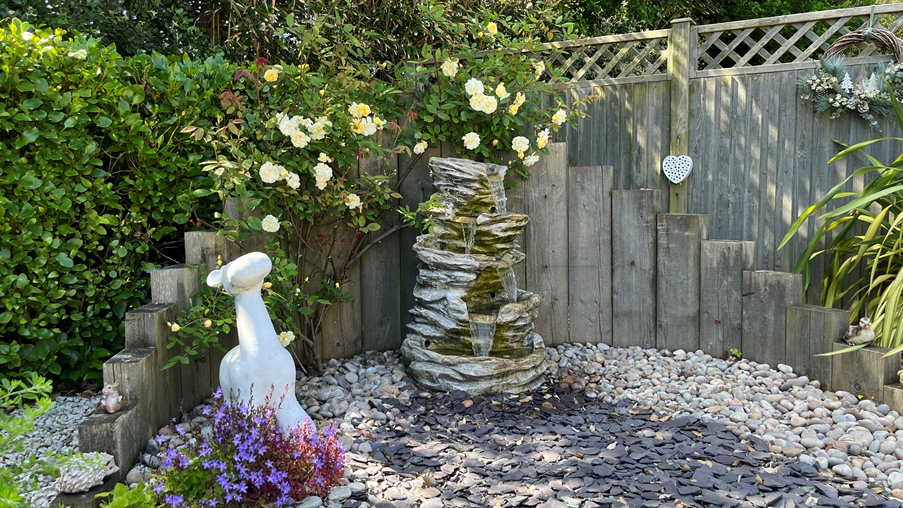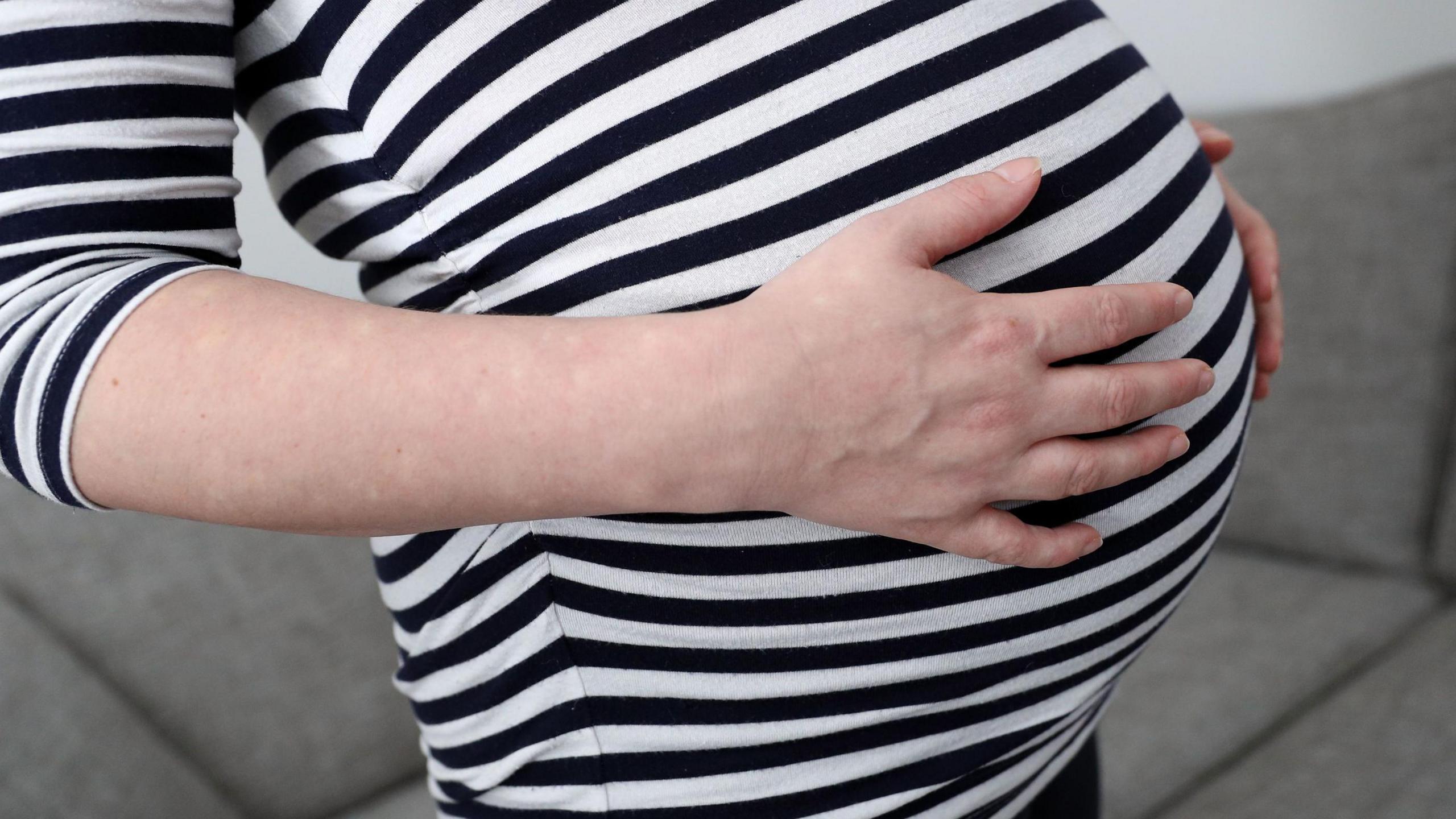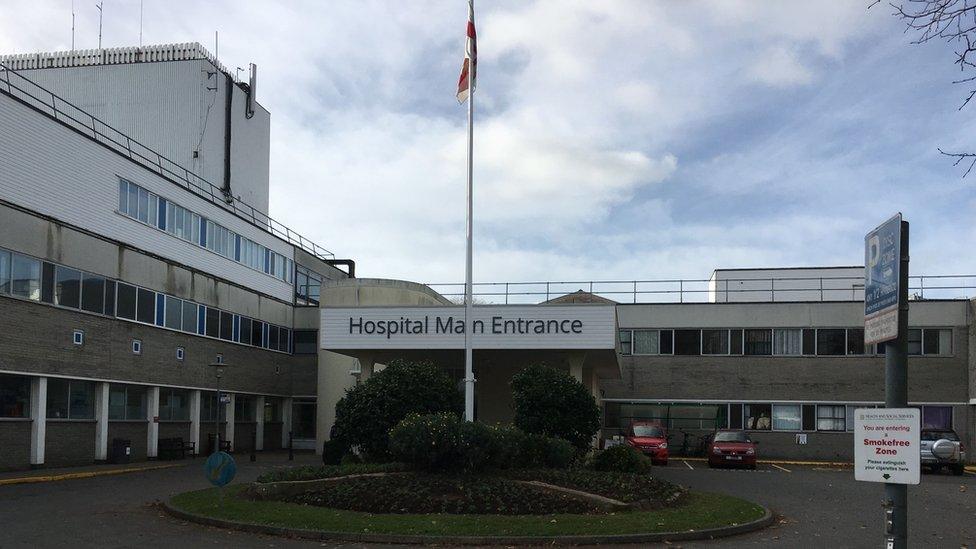Family's anger over response to son's death

Oliver Veron died on 17 April 2016 at the Princess Elizabeth Hospital
- Published
A mother and father whose newborn son died in 2016 after his life support was switched off have criticised Guernsey's health committee for "diminishing" their concerns about his care.
Jonny and Jenna Veron's son Oliver died in hospital shortly after his life support was withdrawn.
An independent report from Portsmouth Hospital, commissioned as part of the inquest, criticised the decision to withdraw care but said "good practice" was apparent.
Health and Social Care (HSC) said in a written reply, external to questions from former chief minister Deputy Gavin St Pier that "independent reviews identified obstetric emergency care was managed well" but it accepted concerns about the "decision to withdraw active care".
The BBC contacted HSC for further comment.
'Deeply upset'
Following the inquest in December 2023, HSC released a statement which said "there was no fault in the midwifery care provided".
Mrs Veron said the committee was "reluctant to accept this monumental failing and write some policies and procedures to prevent premature withdrawal of care".
She said the family were "deeply upset by HSC's statement" at the conclusion of the inquest.
"They diminished our concerns as being merely bereaved parents," she said.
"We both don’t know whether Oliver would have survived, but when Oliver was given to us from the ventilator we were told he would live a further five minutes to two hours.
"He lived for another 16 hours and I can’t help but believe if he would have been given the opportunity to live he would have."
Oliver was born through a footling breach at home, which led to him being put on life support at the Princess Elizabeth Hospital.
Care was withdrawn after seven hours and he died after being alive for just over 16 hours.

Oliver's parents created a memorial garden in their driveway to remember their son
The inquest delivered a verdict of "death by natural causes".
Mrs Veron said she was still "terrified" of going to the Princess Elizabeth Hospital.
"I question everything they say when I use them," she said.
"We were naive trusting what we were told with Oliver.
"I rationally know I am not a medical expert, but the guilt you feel for not questioning what you’re told, the guilt of not asking, has haunted me."
Mr Veron added: "To read in a report a year later that there could have been treatment options, will haunt us for the rest of our lives."
Inquest delay 'unforgivable'
In response to questions from Mr St Pier about whether it had locally written end-of-life protocols, HSC said it followed British Association of Perinatal Medicine guidance.
"All babies requiring intensive care are routinely discussed with a tertiary centre," it said.
He said the fact the Verons had to wait seven-and-a-half years for an inquest into their son's death was "Third World".
"It is unforgivable and shameful that we can’t get an inquest for a case like this in less than seven-and-a-half years," he said.
"We need to examine why is this happening."
'Absolutely heartbreaking'
Mr St Pier, now a member of HSC, said he would be working to try to change the policies around inquests and how they are held locally.
"The story is absolutely heartbreaking," he said.
"Institutionally we need to acknowledge the trauma this family have gone through.
"The whole experience has compounded that.
"There was an opportunity to learn through these questions and answers and that opportunity was missed, which is unfortunate."
He was critical of the way parts of the public sector react when faced with complaints.
"Institutionally we need to acknowledge and listen and change and that is a massive cultural challenge," he said.
"I don't think this is unique to Guernsey and HSC."
Follow BBC Guernsey on X (formerly Twitter), external and Facebook, external. Send your story ideas to channel.islands@bbc.co.uk, external.
- Published7 May 2024

- Published17 September 2019
